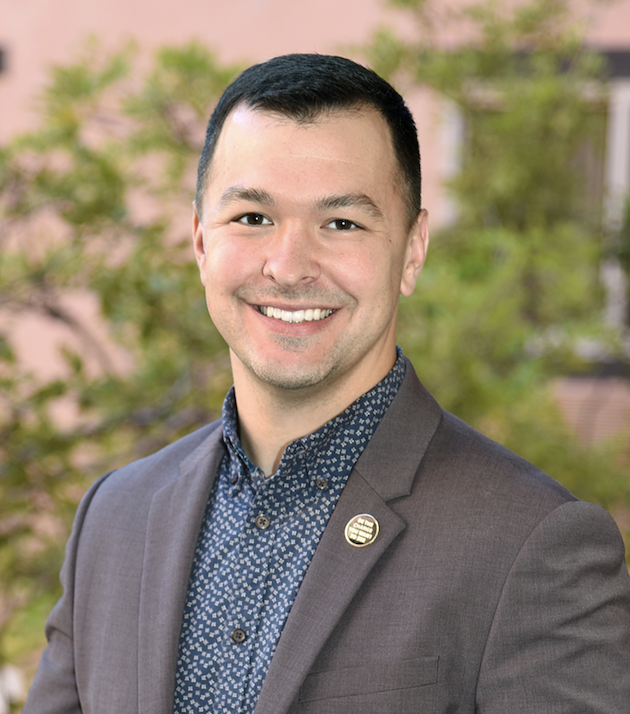 Apr 30, 2025
Persona
Apr 30, 2025
Persona
Until recently, I lived in Durham, North Carolina, a county where nearly 80% of voters supported Kamala Harris. Now, I reside in Isabella County, Michigan, where Donald Trump won by over seven points. The colleges and universities in these two locations navigate dramatically different socio-political environments. The contrast between these places underscores the political, educational, and social divisions shaping our communities and limiting perspectives beyond our zip codes and campus boundaries.
Higher education should play a more central role in addressing the complex partisan divides in our country, but doing so will require us to examine our own actions and institutional strategies. Academia has long operated in an insular bubble. Now, more than ever, we must engage locally, bridging the gap between our institutions and the communities they serve, all while strengthening our commitment to educating students about and for democracy.
The Partisan Education Gap
The 2024 election highlighted the growing correlation between educational attainment and political affiliation—college-educated voters leaned Democratic, while those without a degree favored Republicans. This widening gap should concern higher education leaders. A recent Gallup poll shows confidence in higher education dropped to 36%, down from 60% just a decade prior. If we ignore this partisan divide, we risk further alienation.
We must acknowledge that higher education’s track record may be fueling the divide. Nationally, only 63% of students graduate college within six years. How can we be surprised about the growing skepticism? Too often, poor outcomes are blamed on student preparedness rather than institutional practices. Yet, some schools outperform expectations, proving that investing in student success matters.
If we truly believe in education’s power to strengthen democracy, improving student outcomes must be our top priority. Addressing persistent achievement gaps requires systemic, institution-wide efforts—not just a single office, grant, or position to meet students’ needs. A civic revival may very well be part of the solution to renew student engagement and solve for the partisan divide.
Civic Engagement: A Missed Opportunity
Evidence suggests we are failing to prepare a generation of young people for life in a diverse democracy. Voting is just one metric of civic engagement, yet young voters consistently turn out at the lowest rate of any age cohort. In 2024, only 42% of 18- to 29-year-olds cast ballots; in the 2022 midterms, that number was an abysmal 23%. Some leaders have made civic engagement a key priority for their institution. Unfortunately, many higher education civic engagement efforts lean on apolitical service-learning and community engagement. Educating for democracy should be a year-round endeavor, not just an election-year initiative, and our work must extend into the political domain, but beyond voter education.
A recent Carnegie study found that two-thirds of students and parents believe colleges should support students in addressing political issues. Helping students understand their rights and responsibilities and the complexities of issues like free speech needs to move beyond one-off lectures and programs reserved for political science majors. After all, government and politics influence every aspect of our lives. Leaders should consider reevaluating the general education curriculum to ensure graduates understand their government and the ways they can actively shape civic life. These goals are not partisan; they are essential to a functioning democracy.
The high-impact practices required for civic engagement overlap with strategies that help retain and graduate students prepared for today’s workforce. Students who engage across social differences, for instance, develop stronger critical thinking and problem-solving skills.
Facilitating Constructive Dialogue Across Differences
We are at a crossroads: Will we retreat further into ideological bubbles, or will we model authentic engagement, even with those holding opposing views?
If you work in higher education, you likely spend most of your time among degree-holders. How can you personally break down this divide? Instead of presenting your research solely at academic conferences, consider hosting a community event at your local library or writing an op-ed.
A leader recently asked me, “How am I supposed to help students who feel like their identity and lived reality are under attack?” Listen to your students, learn from them, and model what it means to engage in healthy discourse. Do not abandon your values, but uphold them through a posture of curiosity, dialogue, and learning. We all play a role in leaning into difficult conversations. Encouraging constructive dialogue can promote institutional values, greater understanding across differences, and coalition-building.
Now, more than ever, college and university leaders must align their institutional mission, values, and strategies with this political moment. Too often, campus leaders spend their time reacting to crises rather than proactively shaping culture. Now is the time to act. How will your campus and higher education more broadly meet this political moment?
Learn more about Credo’s Partnership with the Constructive Dialogue Institute.
Higher education leaders must ask themselves: Are we preparing students to navigate a polarized world, or are we deepening the divide? The answer will shape not just our institutions but the future of our democracy itself.
A Call to Action
The divisions in our communities highlight the urgent need for an education that equips students to engage across differences, the ability to discern misinformation and disinformation, and to understand the importance of their civic participation. History remains a powerful tool to educate students about the need for their involvement. Higher education leaders must ask themselves: Are we preparing students to navigate a polarized world, or are we deepening the divide? The answer will shape not just our institutions but the future of our democracy itself.
You don’t need to solve these problems on your own. Credo can help you transform your institution’s culture of student success and retention. Reach out and start a conversation.
